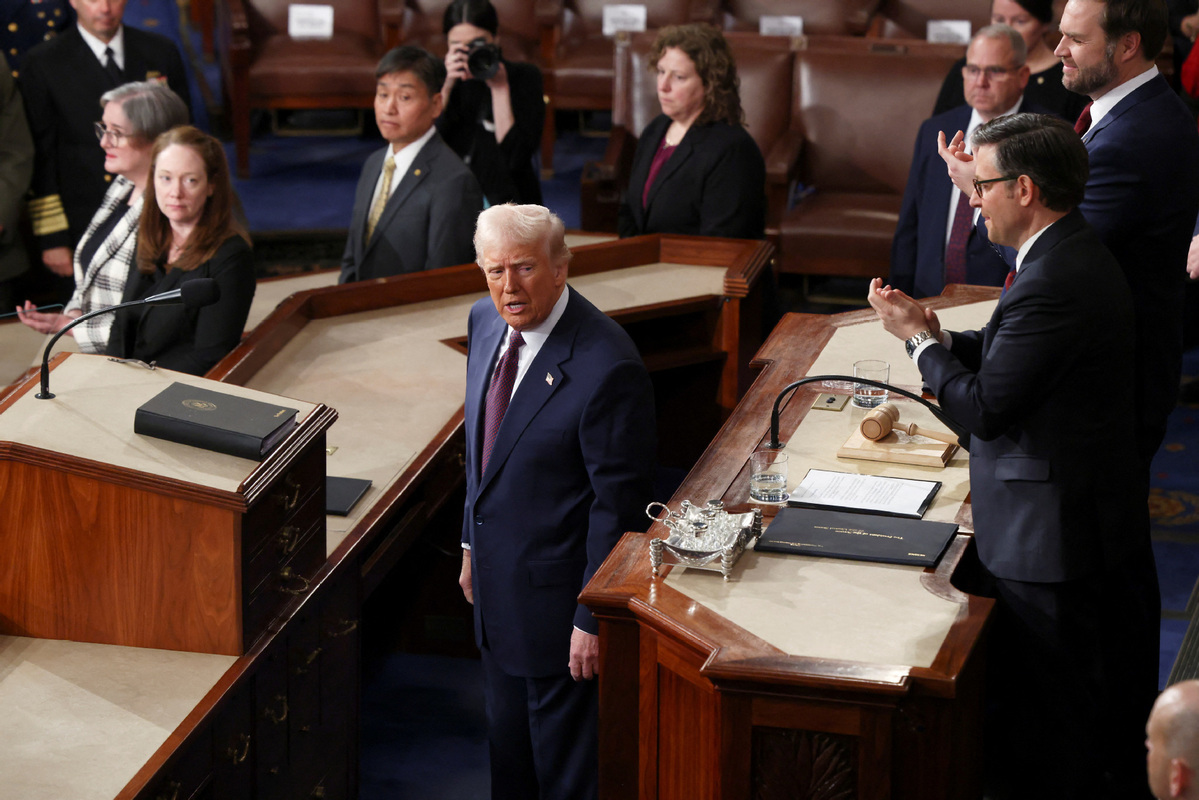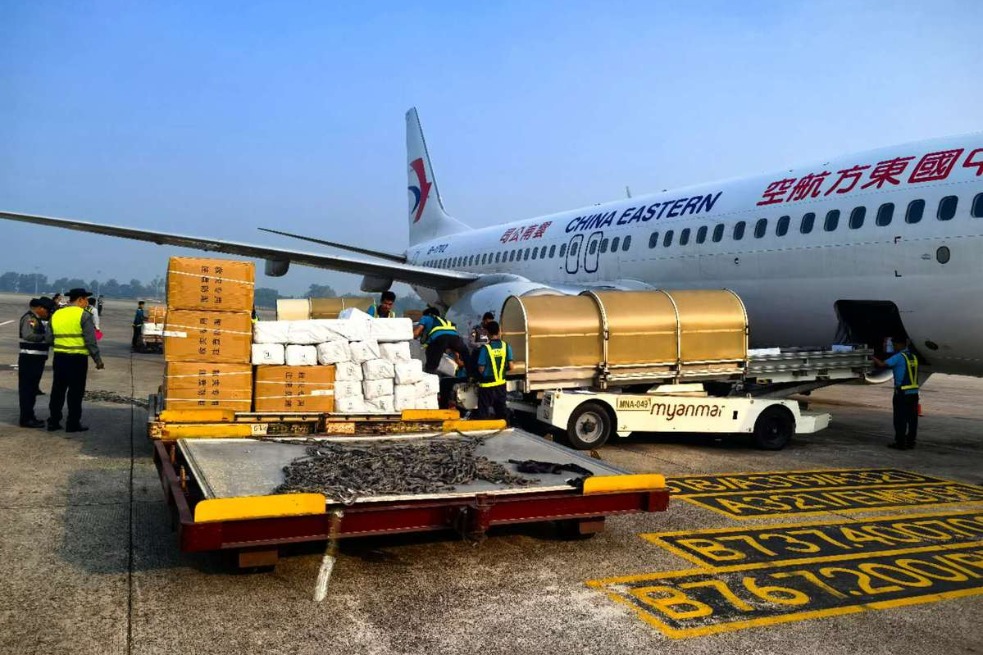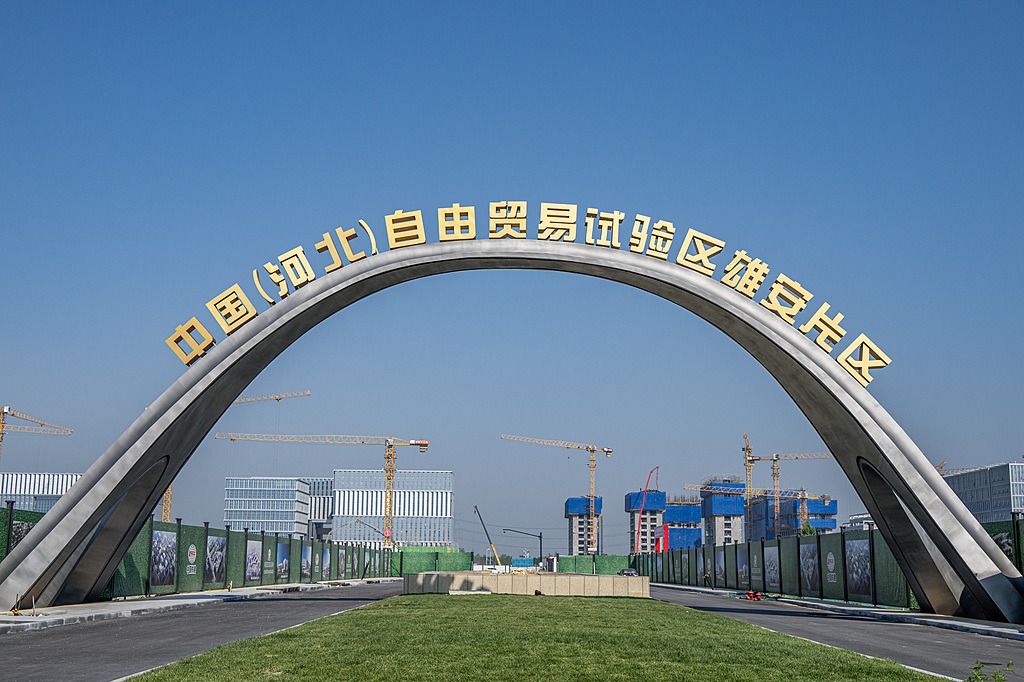Tariff attacks on partners self-created pretty pickle


Despite calls from allies on Wall Street and Capitol Hill to adopt a more measured approach, US President Donald Trump has been pushing for sweeping trade actions aimed at reshaping the US economy.
Trump has reportedly continued to tell his advisers that he wants to keep intensifying trade measures, and in recent days, he has brought back the idea of a universal tariff that would apply to most imports, no matter which country they come from.
If the United States really imposes the "reciprocal" tariffs Trump threatens, it will not only propel the US economy into chaos but also send shock waves across the world.
Earlier on Friday, Trump said that he was open to carving out deals with countries seeking to avoid US tariffs but those agreements would have to be negotiated after his administration announces reciprocal levies on Wednesday.
And the US leader told the media on Saturday he did not warn car industry executives against raising prices as tariffs on foreign-made autos come into force, adding that he "couldn't care less" if they do, as he believes his permanent tariffs on foreign-made automobiles would be a boost to US-domiciled factories and was confident the move would lead to increased sales of US-made cars.
"I hope they raise their prices, because if they do, people are gonna buy American-made cars," Trump said, without explaining whether the US-made cars are also facing high pressure to raise their retail prices as currently a considerable proportion of vehicles made by US companies are actually assembled in Canada and Mexico or with their parts imported from other countries.
That clearly indicates the tariff-happy president is well aware of the disastrous impacts of the US implementing his tariff policy on both the US' economy and its trading partners. By playing down the former and exaggerating the latter, he only intends to use the tariffs as a maximum pressure tactic to force other countries to sit at the negotiation table with the US.
A further evidence of that is Trump said on Wednesday that he may offer to reduce tariffs on China to get Beijing's approval for the sale of popular social media platform TikTok.
"Maybe I give them a little reduction in tariffs or something to get it done," he told reporters at the White House, adding "we're going to have a form of a deal", and if it wasn't done in time, he would extend the deadline.
A US law has ordered TikTok to divest from its Chinese owner Byte-Dance or be banned in the US. The law was enacted on baseless concerns about TikTok being a threat to US "national security". The law took effect on Jan 19, a day before Trump's inauguration, but he quickly announced a delay to the law which has allowed it to continue to operate. That delay is set to expire on Saturday, three days after the planned date for the US to materialize his "reciprocal" tariffs threats.
Beijing swiftly rebuffed Trump's suggestion, with the Chinese Foreign Ministry saying that China's stance against the imposing of additional tariffs is "consistent and clear".
As a matter of fact, despite their openness for trade talks with the US, almost all targeted parties, ranging from Canada, Mexico, Japan and India to the European Union, share a similar view with Beijing when it comes to the US' tariff war that although it produces no winners, they will have to defend their legitimate rights and interests by taking all necessary countermeasures rather than succumb to the US' pressure.
Although there has not yet been a united front among the Trump tariff victims given their trade frictions, they are all supportive of free trade and inclusive economic globalization. The US administration should be reminded its tariff war has in effect prompted some of them to strengthen their economic and trade cooperation, such as the EU and China, and Japan and Republic of Korea and China, in a bid to hedge against the possible impacts from the US' irrational tariff policy.
For instance, the ROK, China and Japan held their first economic dialogue in five years in Seoul on Sunday. The three countries' trade and commerce ministers agreed to "closely cooperate for a comprehensive and high-level" negotiation on a China-Japan-ROK free trade agreement to promote "regional and global trade", according to a statement released after the meeting.
As such, the US policymakers should realize that waging a tariff war against the rest of the world will not "make America great again", as it will backfire on the US economy, shake the foundation of the world order and isolate the US from other countries.

































